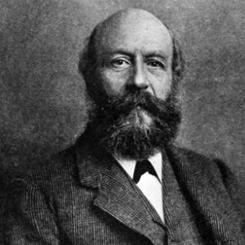It’s Cadbury Favourites, of course; the big purple box with its treasure of miniature confections inside. You’ll find a teeny tiny Crunchie bar, a Picnic, a Dream, a Cherry Ripe, a Timeout and a Boost – all of them invented by Cadbury, along with Roses chocolates and Freddo Frogs.
The Cadbury factory in Claremont, a suburb of Glenorchy in Tasmania, is part of a residential development modelled after the specially created town of Bournville in England, where some of the earliest Cadbury chocolates were produced in the late nineteenth century.
Factories in Victorian England were usually dark, oppressive and unhealthy places to work. Workers were often killed because the working conditions were dangerous. But the Cadbury brothers, who revolutionised the production of chocolate, were at the forefront of improving working conditions for their employees – because they cared about the safety and wellbeing of others.
The members of the Cadbury family were devout followers of Jesus and his teachings. They were conscious of Jesus’ golden rule – do to others what you would have them do to you, and it influenced the way they operated their workplace. Radically different from other workplaces and factories of the time, the Cadbury brothers built warm rooms for their workers to use to dry clothes and cook food. They created a workers’ village with sporting fields and lily ponds and enough land for each house to have a vegetable garden. To cap off these ground-breaking social benefits, there was even a retirement plan to ensure that retired workers had enough money in their old age.
Despite many setbacks, John Cadbury pioneered the commercial production of drinking chocolate and cocoa. He was also a social activist. He campaigned against slavery, the exploitation of children in the workforce, and cruelty to animals. His dream was to produce a drink that would be an alternative to alcohol.
John Cadbury believed that drinking chocolate was not only healthy but could keep families away from pubs and safe from the harmful effects of alcohol. This belief is reflected in some of his early brand names: ‘Churchman’s Chocolate’ and ‘Homeopathic’. Certainly, neither of them has the modern ring of Rocky Road or Caramello, yet his vision has continued to influence the district of Bournville in England. This district, around the original Cadbury factory outside of Birmingham, has been ‘dry’ (alcohol-free) for over a century. Even today, not one of the local pubs, bars or shops serves alcohol.
John’s concern for the welfare of workers and of people in general continued through many generations of his family. His son George ploughed the profits of the company into pension reform (making elderly people more financially secure). As a pacifist (someone opposed to war or fighting), George also funded campaigning to oppose the Boer War.
What prompted all of this social concern? The Cadbury family were Quakers (also known as members of the Religious Society of Friends, or just Friends). Quakers fervently believe in pacifism – non-violent solutions to the world’s problems.
It has been a challenge for them during the world wars of the twentieth century to show patriotic loyalty to their countries while refusing to fight in the wars.

But they found ways to demonstrate their loyalty and help others without fighting. In World War II, Paul Cadbury reactivated the Friends’ Ambulance Unit to support troops in many areas of battle. Because of the Cadbury connection, the name given to pacifists and conscientious objectors (people who refused to fight) who worked in war zones as non-combatants was chocolate soldiers.
The Christian values which influenced the Cadbury family (and many others with similar values) to create a just and equitable society have left a significant legacy. They were people who not only put their money where their mouth was, but where their heart was. In the Bible, it says, ‘What does the Lord require of you? To act justly and to love mercy and to walk humbly with your God.’ (Micah 6:8 NIV)
And those qualities are the very things the Cadbury family has shown the world. Even ‘when you’re told not to bring a thing’, bringing justice, love, mercy and humility are never out of date.
Written by Annie Hamilton.
Resources and Further Reading:
The Cadbury story: https://www.cadbury.com.au/our-history
Cadbury’s history in Australia: https://www.cadbury.com.au/About-Cadbury/Cadbury-in-Australia.aspx

